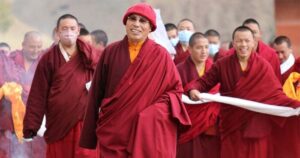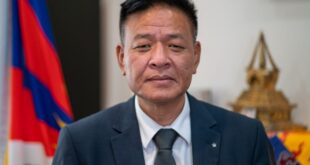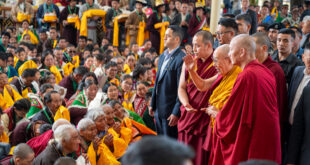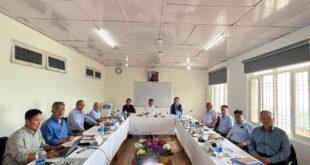The State Administration for Religious Affairs (SARA) issued a regulation titled Measures for the Administration of Religious Groups on January 1, 2020. The regulation consists of 41 articles under six chapters that came into effect on February 1, 2020. Although the regulation is issued under the aegis of SARA, a government agency that oversees religious issues and execute religious policies, the United Front Work Department will now have a direct control and implementation.
The UFWD is a party apparatus under the command of the Central Committee of the Chinese Communist Party that looks after the non-Communist Party entities and oversees ethnic and religious issues. The department has gained enormous importance since Xi Jinping became general secretary of the CCP in fall 2012. He elevated the UFWD to a new height. The first elevation was in 2015 when Xi set up a central leading group on the UFWD.
In his second term (suppose to end in 2022, but abolition of presidential term limit and no clear line of succession laid bare Xi’s intention to stay forever), Xi has reorganized the department by creating three new bureaus over the existing nine. Given the gravity of religious issue, two out of three new bureaus (Eleventh and Twelfth Bureaus) are assigned for religious affairs work. Xi even referred to the United Front Work as “magic weapon” of China reflecting its growing importance and relevance in China’s new era of rejuvenation.
In addition, Xi held a National Conference on Religious Work in 2016. The conference revolved around two main agendas, “Sinicization” of all religions and the need to manage religions according to the “rule of law”. The agendas outlined in the conference were reasserted at the 19th Party Congress held in October 2017 making them guiding philosophies on religion under Xi. However, the Party’s guiding ideology on religion has remained unchanged. In fact, the party can’t afford to overhaul its religious policy founded on Marxist secularization theory meaning that religions will inevitably disappear under the “socialist paradise”.
Given its utmost importance, Zhang Yijiong, executive deputy head of the UFWD echoed Xi’s statement on religion during a press briefing at the sideline of the 19th Party Congress. Zhang’s statement obliquely illustrates the growing importance the UFWD in management of religions under Xi. At the same time, Zhang made a blatant lie that Tibetan Buddhism was originated in ancient China and has Chinese orientation.
Although “sinicization” appears to be a new catchphrase, but “rule of law” is in existence since the time of Jiang Zemin. However, “rule of law” in Chinese context is “rule by law” where the party-state uses law as a political instrument to control and manipulate every aspect of society, including religion that is often perceived by the Party as a potential threat to its legitimacy.
The latest regulation is simply an extension of the revised Regulation on Religious Affairs (enacted on August 26, 2017) became effective on February 1, 2018. The regulations are solely designed to restrict the growing influence of religions and religious activities both in China and overseas in accordance with Chinese law. For instance, the closure of Bodhi Institute of compassion and wisdom, an international center founded by Khenpo (abbot) Sodhargye of Larung Gar, the largest Buddhist academy situated in eastern Tibet, is certainly linked to his growing international prominence. The closure of the center has retroactive effects of the latest regulation.
Under the pretext of quixotic laws and regulations, Beijing carried out forced demolition of Larung Gar and expelled over fifty percent of its residents making it effectively easier to control. This was followed by a change in the Monastic Management Committee of the academy. The academy was previously under the control of MMC comprised of both party and government officials (mostly monks). It is now under the direct control of party cadres who are handpicked by the party authorities. The Party also created a supervisor position to further strengthens the existing control mechanisms. The supervisor sits above the MMC and is required to manage the overall control of monasteries and religious institutions.
The regulation on religious groups is designed primarily to cut down the number of religious groups deemed “illegal” under these so-called laws and regulations. It also allows the party authorities to extend its control over religious personnel and finance of monasteries and religious institutions. At the same time, it ensures loyalty from religious personnel and requires them to unswervingly follow Xi’s religious doctrine. In nutshell, the regulation is intended to achieve the “sinicization” of religions in Xi’s new era of socialism with Chinese characteristics.
*Tenzin Tseten is a research fellow at the Tibet Policy Institute. Views expressed here do not necessarily reflect those of the Tibet Policy Institute.



